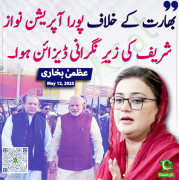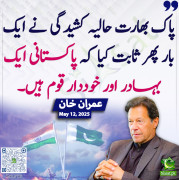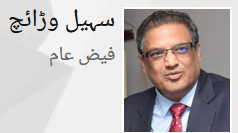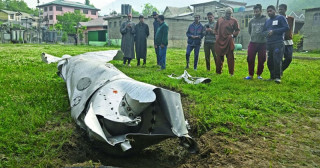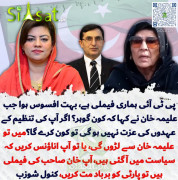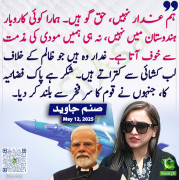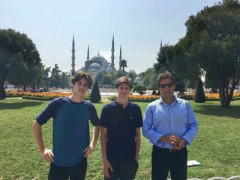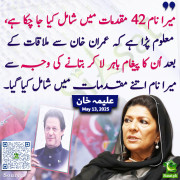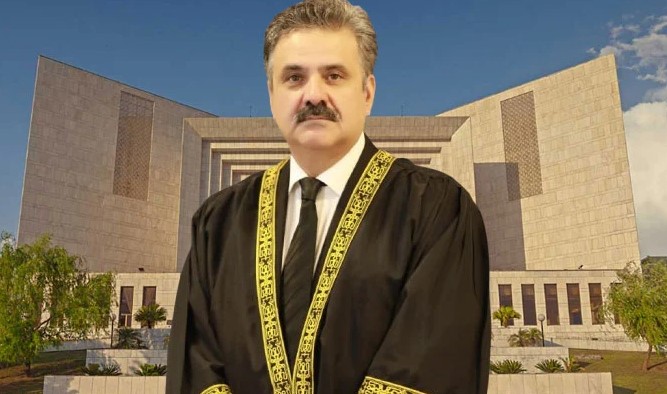Dear Such Bolo,
In 1988 people in Saudia only kept 28 roza because they saw the moon on 29th night of ramadan. We all know that it is not allowed to have only 28 days of ramadan. Later on it was found out that the people in Saudia actually saw Venus and not moon and this kind of human errors cause lot of confusions. We all know that it is Haram to fast on the eid day, but you would agree that by following the current Hilal system, lot of times we are fasting on the day of eid.
I want to ask you a question. What would we do, if sky stay covered with clouds and it is impossible to see the moon on 29th of shaban? Obviously we will start fasting after 30th shaban and we dont even need to see the moon the following night. If we can follow that theory and start ramadan without seeing the moon that why we cant use the calculations and start ramadan?
There is an Islamic society named Islamic Society of North America (ICNA) who publishes their calendar ahead of time and by following it, muslims can start ramadan and celebrate eid on the same day all over the world showing our strength and unity(obviously there would be difference of few hours depending on the geography of any particular country).
We can follow the Lunar calendar that calculate the birth of the moon and it is an established fact that nowadays we can calculate the exact time and day of the birth of moon and this calculation is accurate upto even micro seconds. I believe, this will help in removing lot of confusion that occurs using Hilal System because of human error.
-------------------------------------------
Why are Muslim Dates in a Mess?
Muslims around the world started Ramadan 2005 on four solar days/dates (instead of one lunar day/date).
1. Monday: Nigeria (some Sunday also)
2. Tuesday: Saudi Arabia, Egypt (Most of Middle East, and followers of Saudi dates)
3. Wednesday: Australia, Indonesia, Malaysia, Brunei, Turkey, Africa, Europe and Americas
4. Thursday: Bangladesh, India, Pakistan, Central Asia
This is not the first time it has happened. We at the CFCO have been witnessing this mess for more than thirty years, especially after the communication revolution.
Why are the Islamic dates in such a mess?
Islamic dates are confusing partly because of the crescent moons physical observability, but more so because of human errors and deceptive practices.
Nigeria is known for starting Ramadan and fixing Eidain dates a day or two ahead of others.
Saudi Arabia and Egypt agreed in 1999 Jeddah Conference to fix the Islamic dates by Moonset with or after the sunset. Earlier, Saudi dates were fixed from the conjunction (the New Moon). The experts there ignored the fact that in some months their fixed date will be BEFORE the conjunction?
Most Middle Eastern states follow Saudi/Egyptian dates, though Oman sometimes waits for the Hilal to be visible.
Bangladesh, India, and Pakistan still follow the Hilal generally, though false witnesses some times create confusion.
Muslim communities in Europe and North America face the worst consequences. Every year they are divided, and their younger generation curses the elders for the mess. Those who follow the Saudi / Egyptian dates are unwilling to accept that the Saudi dates cannot be based on a sighted moon there though they cannot see the same moon in N. America 8-11 hours later.
The Islamic dates can easily be calculated if Muslims adopt a few conventions:
1. The date should be based on a crescent moons visibility somewhere in the world;
2. The date should begin at sunset from a fixed international dateline every month.
If the International Solar Dateline (180E) is adopted also as the lunar dateline then Muslim experts can easily calculate the first dates of each Islamic month when a crescent will be generally visible at 180E.
Of course, every nook and corner of the world will not see the crescent because its visibility is in a parabola. But from New Zealand to Hawaii most will see the Hilal on the same date at their sunset.
CFCO Intl. had calculated and circulated these dates for decades since 1986, but has yet to get public endorsement. It is also a co-signer on an appeal to King Abdullah of Saudi Arabia to seriously consider the proposal, and remove the bottleneck.
Source:
http://www.islamicmoon.com/Moonsighting Errors.htm
Source: ISNA (Islamic Society of North America).



